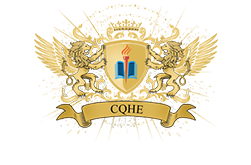All Courses

Business Management only 7 120 Credit
OVERVIEW
The Level 7 Diploma in Business Management (QCF) qualification is designed for you, if you are a graduate or experienced manager who wishes to further develop your career in management.
You will be exposed to a wide range of contemporary issues which will enable you to develop your critical, analytical and technical skills needed for senior management positions. The qualification will also develop your academic skills, which are required for further study at postgraduate level.
ACCREDITATION STATUS
CQHE Education is accredited to award the Level 7 Diploma in Business Management (QCF) (Office of Qualifications and Examinations Regulation) in England. Qualification reference number is 600/0365/0.
ENTRY REQUIREMENTS
For entry onto the CQHE Education L7DBM qualification you must have at least one of the following:
- Academic Route:
An honours degree in a relevant subject area from a UK university (1) or equivalent award from a non-UK university
(2)Or - Combined Route:
An honours degree in a non-relevant subject area from a UK university or equivalent award from a non-UK university, together with three years’ work experience in a relevant area (3)Or - Work Experience Route:
Five years’ work experience in a relevant industry or area (4)And
An IELTS score of 6.5 or above for students who do not hold a degree-level qualification wholly taught and examined in English.
NOTES:
1) Where candidates entering through the ‘Academic Route’ have no work experience and will not be able to gain work experience during their studies (for example because they are subject to UK Tier 4 Student Visa requirements), the centre must make a careful evaluation of the candidate’s suitability for this qualification This may require an interview with the prospective candidate.
2) Where candidates wish to apply with a qualification which the Centre believes may allow entry onto the L7 DBM, but is not explicitly covered in the criteria above, the Centre must confirm this with CQHE Education prior to accepting the candidate’s registration.
3) Candidates entering via the Combined Route who are most likely to succeed will be able to demonstrate a management role and/or significant responsibility for resources (including staff, financial, physical etc.) within their prior work experience. Where candidates are unable to demonstrate this (for example where they need to gain the L7 DBM qualification in order to apply for a management role), they may still be admitted but the centre must make a careful evaluation of the candidate’s suitability for this qualification. This may require an interview with the prospective candidate.
4) Candidates entering via the Work Experience Route who are most likely to succeed will be able to demonstrate, within their five years of related work experience, at least two years in a management role and/or with significant responsibility for resources (staff, financial, physical etc.). Where candidates are unable to demonstrate at least two years in a management role and/or significant responsibility for resources (for example where they need to gain the L7 DBM qualification in order to apply for such a management role), they may still be admitted but the centre must make a careful evaluation of the candidate’s suitability for this qualification. This would normally require an interview with the prospective candidate.
UNITS
You must study the following eight core units:
- Information and Knowledge Management – considers the effective use of information and knowledge by managers in organisations and the technology used to manage, capture and derive this.
- International Marketing Strategy – coverage of a wide range of contemporary issues in strategic marketing with a particular focus on the international cultural dimension.
- Management, Control and Accountability for Financial Resources – considers the responsibility of managers for financial resources under their control and introduces control and management techniques.
- Managing People in Organisations – examines some of the contemporary themes associated with managing people. A thematic approach to the subject develops an awareness of the concepts and theory that underpin organisational behaviour and human resource management.
- Research Methods – develops the knowledge and skills needed by senior management and for further academic research including: critical and creative thinking, complex problem solving, decision-making and research skills.
- Study Skills for Postgraduate Learning – provides the essential skills and knowledge required for studying at postgraduate level. The module is designed to support study in the qualification’s other units and to develop transferable skills useful at managerial level.
- Strategic Management – focuses upon strategic analysis by utilising a set of analytical techniques for further/better understanding, hence influencing a company’s position in its actual and potential marketplace.
- Strategic Operations Management – develops an understanding and an ability to critically appraise decision-making, relating to operations management in both the manufacturing and services sector.
ASSESSMENT
Assessments for all units are offered in a number of assessment cycles throughout the year. Units are assessed by an assessor and EV assignments with the exception of Research Methods and Study Skills for Postgraduate Learning that are assessed by one assignment piece.
ACADEMIC PROGRESSION
The qualification is designed to allow entry to and/or enhance progression in a wide range of management roles in the public, private or charitable sectors. CQHE Education currently has articulations in place for entry onto MBA and other master’s level qualifications with a number of universities.




